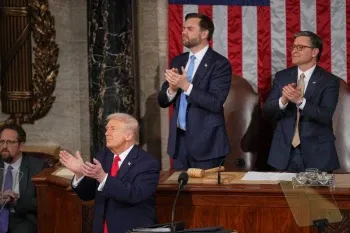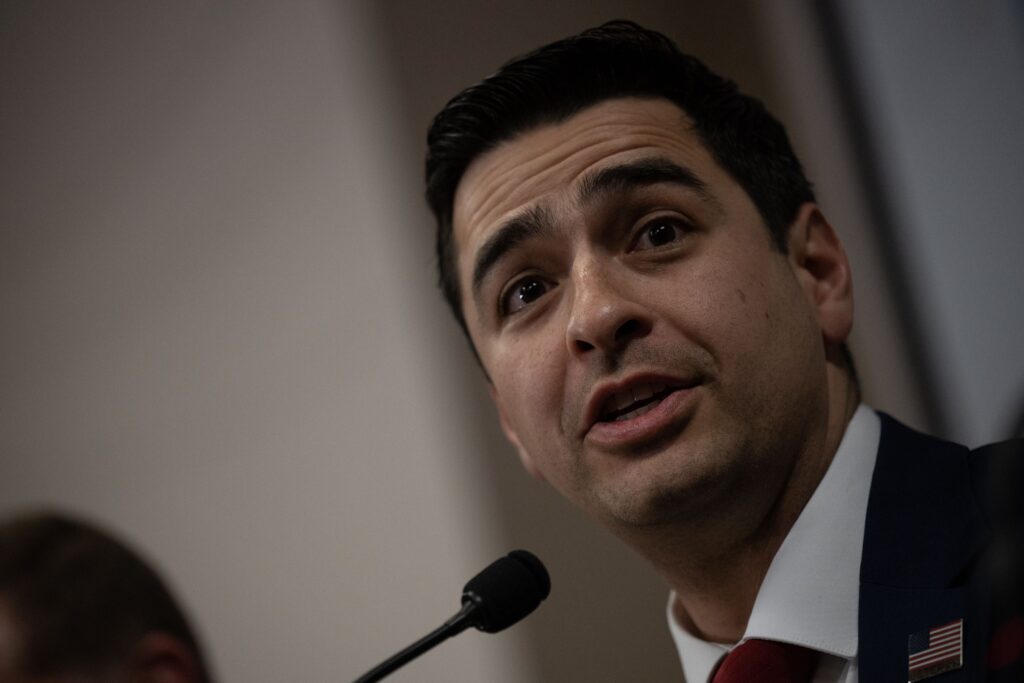Colorado’s leadership on reducing methane more important than ever | PODIUM

Erin Tullos

Stephen Conley

Simon Lomax
In the wake of the 2024 election, federal officials are expected to reassess the nation’s approach to energy, environmental and climate policy. How much it will change, and how fast it will change, is highly uncertain at this point.
But one thing is clear: Colorado’s expertise in regulating methane, a powerful greenhouse gas, will continue to play a critical role on the national and global stage. In fact, Colorado’s continued leadership on methane may be more important now than ever before.
Colorado’s pioneering approach, initiated in 2014 as the first U.S. state to implement direct methane regulations for oil and gas production, provides a valuable model to other jurisdictions.
What sets Colorado apart is its collaborative framework, bringing together regulators, industry operators and environmental groups to craft practical and effective policies. This stakeholder-driven process ensures regulations are both ambitious and feasible, balancing environmental objectives with operational realities.
This approach has not only shaped the U.S. Environmental Protection Agency’s methane rules but also garnered international attention. Officials from nearly a dozen oil and gas producing countries, including Canada, Iraq and Argentina, have looked to Colorado for guidance, solidifying its role as a global leader in methane management.
Stay up to speed: Sign up for daily opinion in your inbox Monday-Friday
To date, countries representing almost 40% of global methane emissions from oil-and-gas supply chains have either adopted or shown interest in adopting Colorado-style methane reduction strategies, according to data from the state health department and the International Energy Agency.
This leadership role is truly remarkable when you consider Colorado is responsible for just 0.001% of global methane emissions from oil and natural gas supply chains.
Remarkably, Colorado has achieved these results while remaining a major energy-producing state. After 10 years of progressively tighter methane controls, oil production is 74% higher and gas production is 11% higher than it was in 2014, according to annual data from the U.S. Energy Information Administration.
This demonstrates smart regulations and industry practices can drive both environmental progress and economic efficiency. Colorado’s success stems from recognizing methane, the primary component of natural gas, represents a valuable resource.
By eliminating leaks, energy producers increase their output, benefiting both the industry and global markets seeking alternatives to high-emission natural gas sources.
That’s good news for America’s allies and trading partners in Europe and Asia, who are working hard to find alternatives to natural gas from countries like Russia, Algeria or Turkmenistan, which is produced with much higher methane emissions than U.S. gas.
Geopolitics aside, there are major climate implications too. Methane traps far more heat than carbon dioxide on a pound-for-pound basis, making its reduction crucial in the fight against climate change.
Eliminating methane emissions from global oil and gas supply chains could have a similar effect to electrifying all vehicles worldwide, but at a fraction of the cost and implementation time.
Last but not least, the Colorado model of methane reduction also sets a new standard for innovative, collaborative and data-driven environmental policy.
For example: Colorado recently introduced a first-of-its-kind emissions intensity standard that promotes the use of advanced measurement technologies while also providing flexibility for smaller operators.
Companies can use ground-level monitors, aircraft surveys, drone flights and other methods to directly quantify their own emissions, or they can apply industry-wide estimates for methane and carbon dioxide to their production levels of oil and natural gas. This dual-pathway approach is a pragmatic solution that aligns environmental goals with industry needs.
Colorado’s approach further aligns with the growing movement toward emissions intensity standards in Europe and Asia, as officials in those markets look to drive down supply-chain emissions for imported sources of energy.
Bottom line: Maintaining Colorado’s leadership on methane and expanding Colorado-style methane reduction practices globally represents a crucial opportunity. It may be the fastest, cheapest and most effective action the world can take to slow the pace of climate change in the short term.
Erin Tullos, Ph.D., is a research affiliate with Colorado State University and senior research fellow with the University of Texas at Austin. In 2021 and 2022, Tullos managed Scientific Aviation’s aerial measurement program in Boulder. Stephen Conley, Ph.D., is a pilot and former U.S. Navy officer who founded Scientific Aviation in 2010. Simon Lomax is a policy and outreach advisor to the Payne Institute for Public Policy at the Colorado School of Mines and a former congressional fellow with the American Political Science Association.











